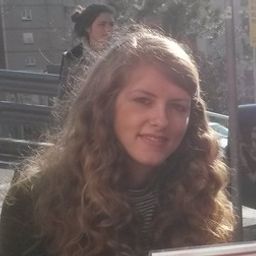Heritage Futures / Utopian Currents II
Thèmes:
Changes in Heritage (New Manifestations)Notions of HeritageArchitecture and Urbanism
Quoi:
Regular session
Quand:
9:00, Dimanche 5 Juin 2016
(3 heures 30 minutes)
Où:
UQAM, pavillon J.-A. De Sève (DS)
- DS-R515
Comment:
The notion of heritage is closely linked to processes of change. In the Western context, the definition of heritage as "a contemporary product shaped from history" (Harvey 2010) highlights the extent to which our relationship with the past is being continually re-configured. However, there is a future dimension implied in this relationship that is often neglected; to paraphrase William Morris, the sense in which heritage testifies to the hopes and aspirations of those now passed away. Making the future-oriented aspect explicit is both an acknowledgement of the inevitability of change and an opening for thinking about the changes envisaged by former generations. In other words, heritage is not only a record of the past but also a history of what people imagined the future might be.
These logics of the future speak directly—as utopianism always does—to different social and political imaginaries.
• How do such temporal logics relate to alternative heritage scenarios?
• What kind of politics is implied by ideas of "forever, for everyone" (UK National Trust slogan)?
• What sort of imaginaries might open up political potentials for heritage and have implications for decision-making processes?
• How might we diagnose utopian tendencies in heritage practices?
This session invites contributions on utopian currents in the field of critical heritage studies. The perspective of historical futures will be used to shed light on a range of case-based topics, as well as raising the question of our own present, and how contemporary heritage practices might hold open or foreclose possible futures.
The session encourages proposals on themes including, but not limited to:
• Heritage futures based on current practices.
• The social and political imaginaries involved in heritage practices and writing about heritage.
• Logics of time and the negotiation of the past and the future within heritage studies (through, for example, conservation, interpretation, participation).
• Critical heritage approaches to the temporal politics of heritage.
• Diagnoses of utopian currents in heritage case studies.
• Discussions of heritage in relation to the hopes/fears of particular groups or communities of people.
• Examples of utopian interventions oriented toward change, or alternative heritage decision-making processes.
These logics of the future speak directly—as utopianism always does—to different social and political imaginaries.
• How do such temporal logics relate to alternative heritage scenarios?
• What kind of politics is implied by ideas of "forever, for everyone" (UK National Trust slogan)?
• What sort of imaginaries might open up political potentials for heritage and have implications for decision-making processes?
• How might we diagnose utopian tendencies in heritage practices?
This session invites contributions on utopian currents in the field of critical heritage studies. The perspective of historical futures will be used to shed light on a range of case-based topics, as well as raising the question of our own present, and how contemporary heritage practices might hold open or foreclose possible futures.
The session encourages proposals on themes including, but not limited to:
• Heritage futures based on current practices.
• The social and political imaginaries involved in heritage practices and writing about heritage.
• Logics of time and the negotiation of the past and the future within heritage studies (through, for example, conservation, interpretation, participation).
• Critical heritage approaches to the temporal politics of heritage.
• Diagnoses of utopian currents in heritage case studies.
• Discussions of heritage in relation to the hopes/fears of particular groups or communities of people.
• Examples of utopian interventions oriented toward change, or alternative heritage decision-making processes.
Participant.e
University of Leeds, History of Art and Cultural Studies, United Kingdom
PhD Candidate
Sous sessions
09.00 Patrimonialisation de l’utopie et utopie patrimoniale face à la crise des quartiers populaires : comparaison de trois ensembles d’architecture proliférante à Plaine Commune (France, banlieue parisienne)
9:00
(30 minutes)
Partie de:
Heritage Futures / Utopian Currents II
Participant.e
Dr Géraldine Djament-Tran (université de Strasbourg)
Paper
09.40 A Scientifically Astute Society for the Future: Heritage Perspectives in Indian Science Museums and Centres
9:00
(30 minutes)
Partie de:
Heritage Futures / Utopian Currents II
Participant.e
Anwesha Chakraborty (University of Bologna)
Paper
09.20 Making Sense of the Future: Valuing Industrial Heritage in the Anthropocene
9:00
(30 minutes)
Partie de:
Heritage Futures / Utopian Currents II
Paper
10.00 The "War to End War": Utopian Dreams and Lost Opportunities of First World War Heritage
9:00
(30 minutes)
Partie de:
Heritage Futures / Utopian Currents II
Participant.e
Professor David Harvey (University of Exeter, UK)
Paper

